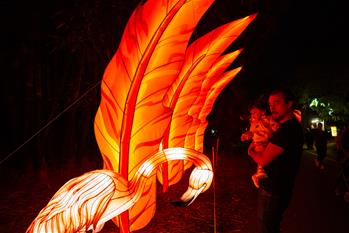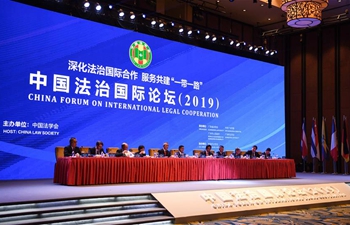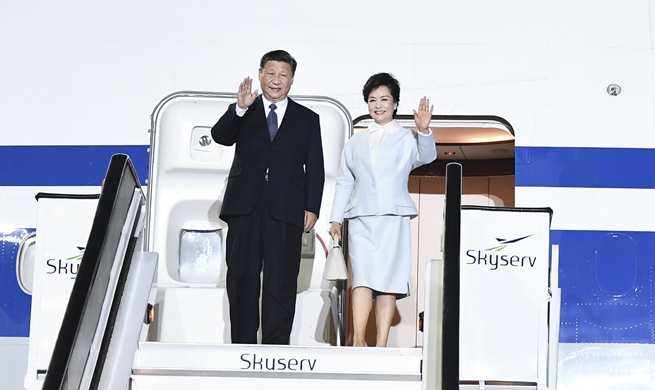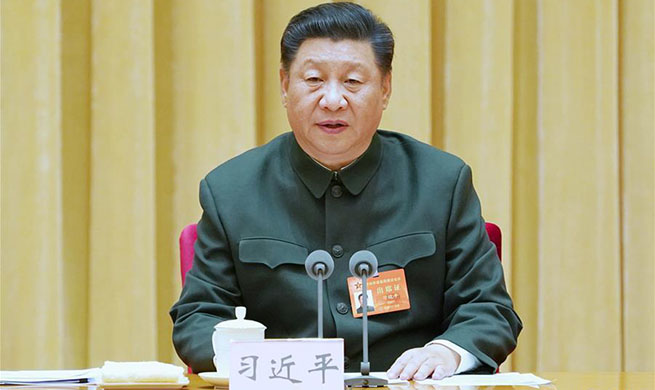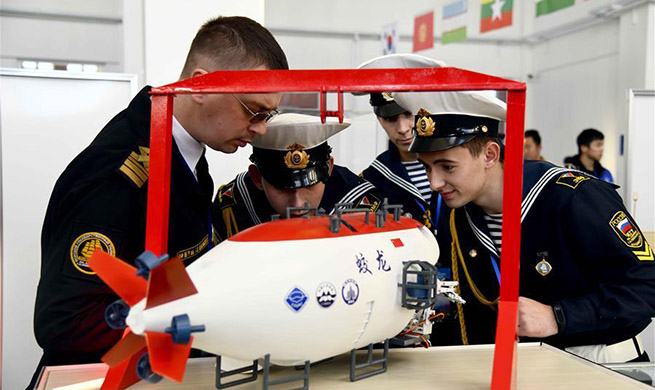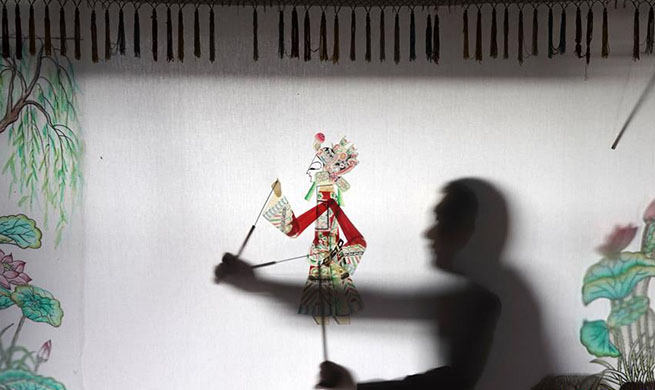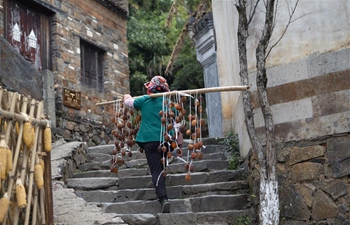ULAN BATOR, Nov. 11 (Xinhua) -- In the Bayangol district of Mongolia's capital Ulan Bator some disabled children are receiving treatment at a medical center built with assistance from China.
Parents say their children's conditions, including those with cerebral palsy, are improving, thanks to the center.
"There have been a lot of changes in my daughter's condition since the start of the treatment," said Bayarbaatar of her five-year-old daughter.
His daughter was diagnosed with cerebral palsy three and a half years ago. In June, the girl started receiving treatment at the medical center.
"Particularly, she learned to eat without the help of others. In addition, she can now walk with the help of an auxiliary walker," Bayarbaatar said.
"I am very happy that many children like my daughter who have been receiving treatment at this center, have been improving significantly in front of my eyes," the father said.
He expressed his thanks to the Chinese government and people for building the medical center for disabled children.
Munkhbaatar, a three-year-old boy, is also being treated at the center.
"My son was diagnosed with cerebral palsy when he was one year old. Thanks to the medical center, my son can now sit well without support, stand on his own and crawl," the boy's mother Munkhtuya told Xinhua.
The disabled boy has been undergoing treatment at the center since September, according to the mother.
"I would like to express my sincere gratitude to the Chinese side for constructing the facility," the mother said.
The China-funded medical center for disabled children was officially put into operation on May. 31. It is equipped with 250 beds and advanced medical devices, and can provide medical treatments for 250 outpatients a day.
"The medical center with advanced devices is the first of its kind in Mongolia. Since the beginning of June, more than 600 disabled children across Mongolia have received treatment at our center," said Rentsendorj Galbadrakh, acting director of the center.
"Majority of our customers or 70 percent of them are children who suffer from cerebral palsy," Galbadrakh said.
"Physical rehabilitation services, especially child rehabilitation, are one of the emerging sectors in the Mongolian medical sector. That's why this type of personnel is insufficient in our country," she said.
She noted that a total of 30 staff at the center were trained in China in June for child rehabilitation.
There were 103,600 disabled people in Mongolia at the end of 2018, 11 percent of whom were children, according to data from Mongolian authorities.

